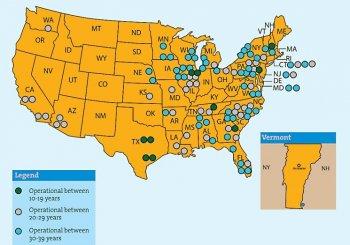Since the emergence of concerns about climate change, the debate about its seriousness and human beings’ role in causing it has been heated. Some, such as Al Gore and the Intergovernmental Panel on Climate Change (IPCC) have argued that the scientific evidence proves human beings have had a large role to play in climate change. Others such as MIT professor Richard S. Lindzen, and the president emeritus of the National Academy of Science Frederick Seitz have rejected the seriousness of global warming and the role of human activity in causing it.
Researchers at Stanford University took on a study assessing the qualification and expertise of the scientific proponents of both positions. They used quantitative analysis. This study found that scientists who doubt that humans have a role in global climate change have “far less expertise and prominence” in climate research.
Expertise and prominence were measured using the same standards universities use when granting tenure positions to their professors. These criteria include the number of papers on climate research written by each individual, with a minimum of 20 required to be included in the analysis, and the number of times other scientists cite each researcher’s papers in other publications.
The study showed that those convinced of human activity’s role in climate change had, on average, approximately twice as many publications and 64 percent more publication citations, compared to doubters.
The study also generated a 100 top list of the most prominent and expert scientists in climate research. Out of these 100, 97 of them were those who affirmed the role of human activity in causing climate change.
Some who may find issue with the study’s finding could argue that the results are a reflection of some sort of group think tendency within scientific inquiry. The top scientists may all conform to the same conclusion on climate change because of a certain clique mentality within scientific circles. According to William Anderegg, lead author of a paper published in the online Early Edition of Proceedings of the National Academy of Sciences, this claim is unfounded. “When you stop to consider whether some sort of group think really drives these patterns and could it really exist in science in general, the idea is really pretty laughable,” he said. “All of the incentives in science are exactly the opposite. ... If you were a young researcher and had the data to overturn any of the mainstream paradigms, or what the IPCC has done, you would become absolutely famous.”
In an article published in Stanford News, Stephen Schneider, professor of biology and a coauthor of the paper in Proceedings of the National Academy of Sciences pointed to the value in highlighting the qualifications and merits of scholars on opposing sides of an issue. “If the media doesn’t report that something is a way out opinion relative to the mainstream, then how is the average person going to know the relative credibility of what is being said?”
According to these perspectives, while the media has reported on both side of the climate change discussion, it has failed to assess the credibility and expertise of these voices. This study is meant to bring the credibility and authority of climate scientists to the foreground.
Researchers at Stanford University took on a study assessing the qualification and expertise of the scientific proponents of both positions. They used quantitative analysis. This study found that scientists who doubt that humans have a role in global climate change have “far less expertise and prominence” in climate research.
Expertise and prominence were measured using the same standards universities use when granting tenure positions to their professors. These criteria include the number of papers on climate research written by each individual, with a minimum of 20 required to be included in the analysis, and the number of times other scientists cite each researcher’s papers in other publications.
The study showed that those convinced of human activity’s role in climate change had, on average, approximately twice as many publications and 64 percent more publication citations, compared to doubters.
The study also generated a 100 top list of the most prominent and expert scientists in climate research. Out of these 100, 97 of them were those who affirmed the role of human activity in causing climate change.
Some who may find issue with the study’s finding could argue that the results are a reflection of some sort of group think tendency within scientific inquiry. The top scientists may all conform to the same conclusion on climate change because of a certain clique mentality within scientific circles. According to William Anderegg, lead author of a paper published in the online Early Edition of Proceedings of the National Academy of Sciences, this claim is unfounded. “When you stop to consider whether some sort of group think really drives these patterns and could it really exist in science in general, the idea is really pretty laughable,” he said. “All of the incentives in science are exactly the opposite. ... If you were a young researcher and had the data to overturn any of the mainstream paradigms, or what the IPCC has done, you would become absolutely famous.”
In an article published in Stanford News, Stephen Schneider, professor of biology and a coauthor of the paper in Proceedings of the National Academy of Sciences pointed to the value in highlighting the qualifications and merits of scholars on opposing sides of an issue. “If the media doesn’t report that something is a way out opinion relative to the mainstream, then how is the average person going to know the relative credibility of what is being said?”
According to these perspectives, while the media has reported on both side of the climate change discussion, it has failed to assess the credibility and expertise of these voices. This study is meant to bring the credibility and authority of climate scientists to the foreground.

